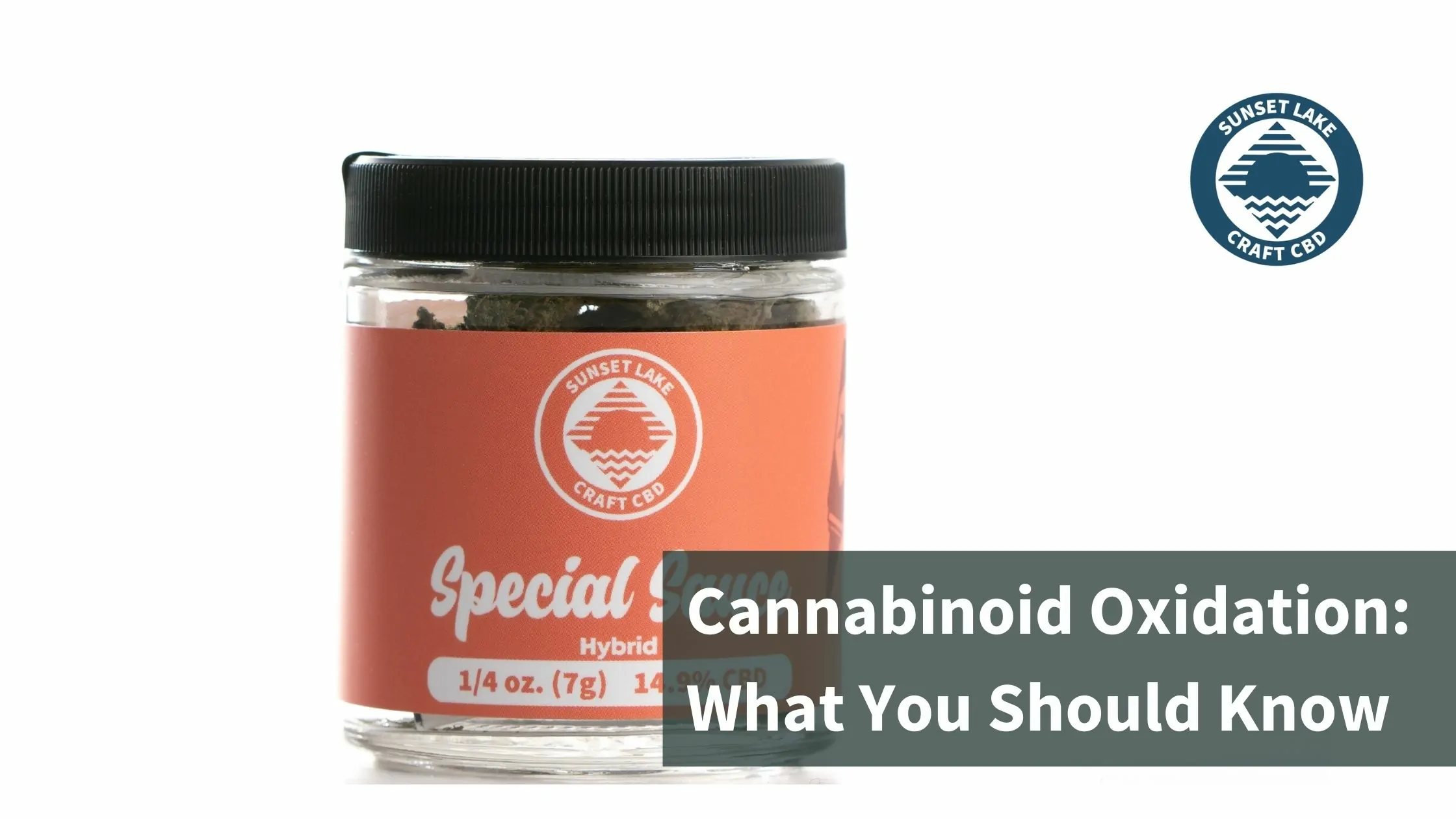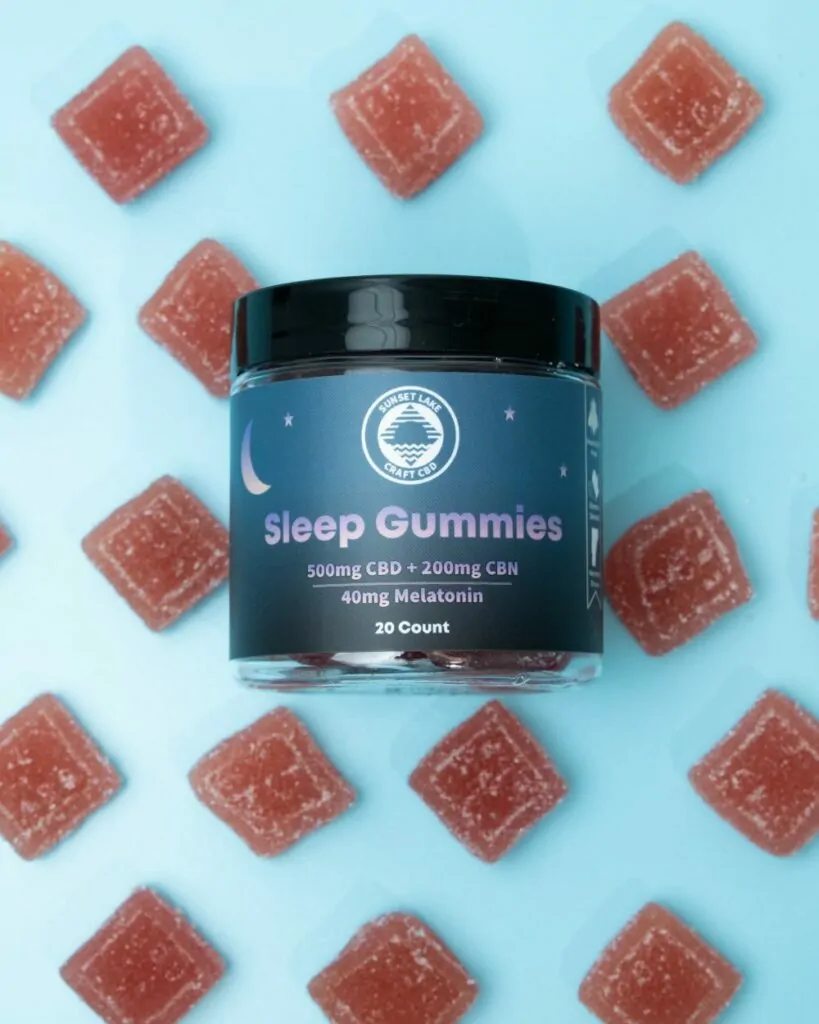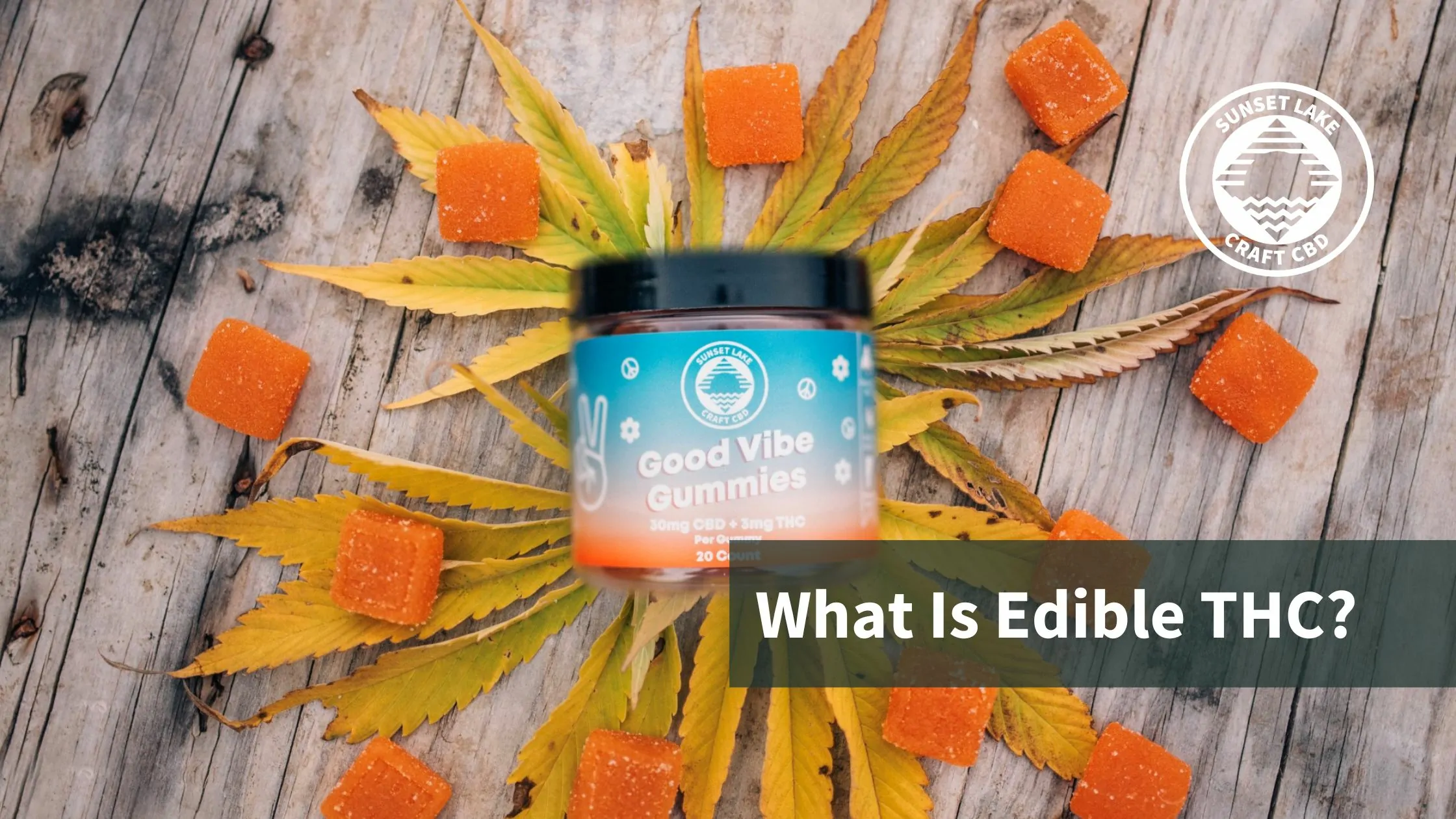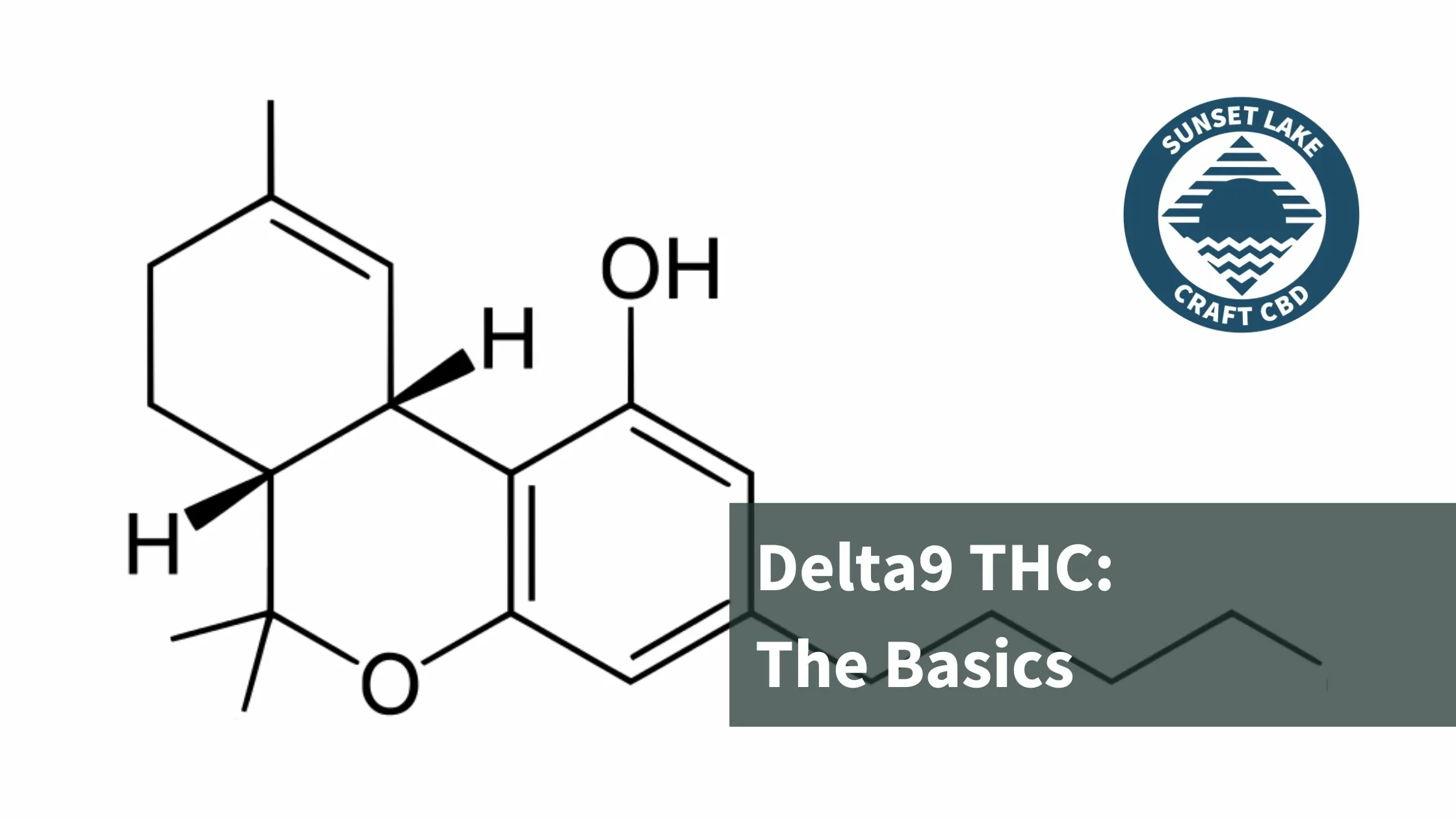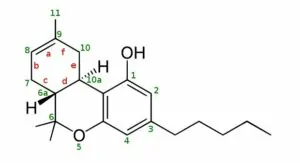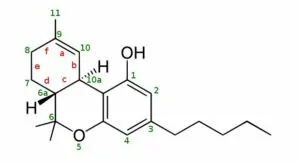What does the “best by” date on your jar of hemp flower mean? Can the cannabinoids—the active ingredients inside—expire? The short answer is, yes, sort of. While the flower itself isn’t going to go bad for quite some time, the cannabinoids that you’re buying the flower for (whether CBD or THC) can oxidize and lose potency. Understanding cannabinoid oxidation and its factors is crucial to keeping your flower fresh and stable.
In this post, we’re going to cover:
- What cannabinoid oxidation is
- How oxidation changes THC and CBD
- How to prevent your flower from oxidizing
What is Cannabinoid Oxidation?
Oxidation is a chemical process that occurs when cannabinoids are exposed to environmental factors, mainly air, UV light, and heat. Oxidation has more than a few definitions, but when we talk about organic compounds like cannabinoids, we mean that the cannabinoid is either losing hydrogen (H) atoms or gaining oxygen (O) atoms.
Understanding the oxidation process is essential for anyone using hemp or cannabis products. The stability of these products directly affects their efficacy, and knowing how to store them properly can make a significant difference in their longevity.
The Science Behind Oxidation
Oxidation is a common process that affects many organic compounds. In the case of cannabinoids, oxidation can lead to the degradation of THC (tetrahydrocannabinol) and CBD (cannabidiol), two of the most well-known and studied cannabinoids. This degradation can result in the formation of new compounds, which may have different effects and benefits compared to the original cannabinoids.
Cannabinoid Oxidation is Not Decarboxylation
While heat can play a major role in both oxidation and decarboxylation, the two processes are not the same. Decarboxylation occurs when we use heat to make an acidic cannabinoid like CBDa drop its extra carboxyl ring group (COOH) and activate it so that our endocannabinoid system can use it.
Oxidation is a slower process and can happen to both acidic cannabinoids and activated cannabinoids (with much different results!). Understanding the distinction between these two processes is crucial for anyone looking to maximize the benefits of their hemp or cannabis products.
The Role of Heat in Cannabinoid Processing
Heat is an essential factor in both oxidation and decarboxylation. However, the effects of heat on cannabinoids vary depending on the temperature and duration of exposure. While decarboxylation typically requires higher temperatures over a shorter period, oxidation can occur at lower temperatures over a more extended period. This distinction highlights the importance of proper storage conditions to maintain the quality of your cannabinoids.
What Causes Cannabinoids to Oxidize?
Several environmental factors can cause the cannabinoids in your hemp to oxidize. Most of them relate to how you store your hemp.
UV Light Exposure
UV light can accelerate the oxidation process. When you expose hemp flower and cannabis to light, high-energy photons bombard the cannabinoids within and can break off hydrogen atoms. This exposure can significantly reduce the potency of your cannabinoids over time.
Air Exposure
Oxygen, like in the air we breathe (O₂), can also react with cannabinoids in your hemp flower. Cannabinoids, being organic compounds, can experience oxidative stress just like our bodies. This oxidative stress can lead to the breakdown of cannabinoids, resulting in a loss of potency and efficacy.
Learn more about how functional mushrooms can help reduce oxidative stress.
Excessive Heat
Higher temperatures can accelerate chemical reactions like oxidation. If your hemp or cannabis flower is exposed to heat (like in the trunk of your hot car), it may lose some potency! Heat increases the kinetic energy of molecules, which can lead to more frequent and intense reactions, including oxidation.
Related: Can CBD Oil Expire?
Humidity and Moisture
In addition to UV light, air, and heat, humidity and moisture can also impact the stability of cannabinoids. Excess moisture can create an environment conducive to mold growth, which can further degrade the quality of your hemp or cannabis flower. Keeping your product dry and in a controlled environment is essential for maintaining its integrity.
Oxidized Cannabinoids: THC and CBD
The two best-known cannabinoids, THC and CBD, are both sensitive to oxidation and can turn into different cannabinoids altogether.
THC Oxidation: Drop the “TH”
When we expose THC to the elements, it can oxidize and turn into cannabinol (CBN). This transformation not only affects THC’s psychoactive properties, but CBN can also counteract some of the unwanted side effects of THC consumption.
THC (C₂₁H₃₀O₂) > oxidation > CBN (C₂₁H₂₆O₂)
CBN isn’t necessarily a bad byproduct, though. Some research suggests that this unique cannabinoid may have a host of benefits all on its own. We here at Sunset Lake have combined CBN together with CBD to make our best-selling CBN-infused Sleep Gummies, as it’s believed that the two together with melatonin can help get you to bed.
CBD Oxidation: Add a “Q”
Unlike THC and CBN, when we expose CBD to the elements, it can oxidize into hydroxyquinone (HU-331) and potentially other cannabinoids we have yet to isolate and discover.
CBD (C₂₁H₃₀O₂) > oxidation > HU-331 (C₂₁H₂₈O₃)
HU-331 is a fascinating molecule that’s been shown to have an effect against oncogenic human cells. Without getting too much into the medical nitty-gritty, let’s just say cancer researchers should pay some extra attention to CBD oxidation and all of the derivatives it produces.
The Impact of Oxidation on Cannabinoid Efficacy
The transformation of cannabinoids through oxidation can significantly impact their efficacy. While some oxidized cannabinoids may retain beneficial properties, others may not be as effective. Understanding these changes can help users make informed decisions about their hemp and cannabis products.
How to Slow Cannabinoid Oxidation
Because oxidation is also a function of time, it’s important to note that we can’t stop the process completely. That said, there’s plenty you can do to slow down the process and protect your cannabinoids.
Airtight Containers
When choosing storage containers for your hemp or cannabis flower, choose a container with an airtight seal like a mason jar with a matching top or rubberized Tupperware. These containers can help minimize exposure to oxygen and other environmental factors that can accelerate oxidation.
In the Dark
If your chosen container is see-through, you’ll also want to store your flower in a dark place away from natural light. Better yet, you can store your flower in an opaque container in the dark. Reducing exposure to UV light can significantly slow the oxidation process and preserve the potency of your cannabinoids.
Cool Places
Keep your cannabis and hemp flower in places with cool, stable temperatures. That means don’t store it in your car trunk or your bathroom’s medicine cabinet. Instead, store your airtight, opaque containers in a basement or air-conditioned closet. Temperature stability is key to maintaining the quality of your cannabinoids over time.
Humidity Control
Using humidity control packs can help maintain the ideal moisture level in your storage containers. These packs can absorb excess moisture or release moisture as needed to keep your hemp or cannabis flower in optimal condition. Proper humidity control can prevent mold growth and further degradation of your product.
Regular Monitoring
Regularly check your stored hemp or cannabis flower for signs of degradation. Look for changes in color, smell, and texture, which can indicate oxidation or other issues. Early detection can help you take corrective actions to preserve your product’s quality.
The Benefits of Proper Storage
Proper storage of hemp and cannabis products can extend their shelf life and preserve their potency. By understanding the factors that contribute to oxidation and taking steps to mitigate them, you can ensure that your cannabinoids remain effective for as long as possible.
Comparing Storage Techniques
Different storage techniques can have varying impacts on the stability of cannabinoids. For example, vacuum sealing and refrigeration can offer additional protection against oxidation. Comparing these methods can help you determine the best approach for your specific needs.
Long-Term Storage Solutions
For those looking to store hemp or cannabis products for extended periods, consider using vacuum-sealed bags or investing in a dedicated storage solution. These methods can provide an extra layer of protection against environmental factors that contribute to oxidation.
FAQs
What is cannabinoid oxidation?
- Cannabinoid oxidation is a chemical process where cannabinoids lose hydrogen atoms or gain oxygen atoms when exposed to environmental factors like air, UV light, and heat.
How does oxidation affect THC and CBD?
- Oxidation can transform THC into cannabinol (CBN), altering its psychoactive properties. CBD can oxidize into hydroxyquinone (HU-331), which may have unique biological effects.
What can cause cannabinoids to oxidize?
- Cannabinoids can oxidize due to exposure to UV light, air, excessive heat, and humidity. Proper storage can mitigate these factors.
How can I prevent my hemp flower from oxidizing?
- Store your hemp flower in airtight containers, keep it in the dark, maintain it in cool, stable temperatures, and control humidity levels to slow down oxidation.
Is oxidized THC or CBD harmful?
- Oxidized cannabinoids like CBN and HU-331 are not necessarily harmful and may have unique benefits. However, they do differ in properties from their non-oxidized forms.

